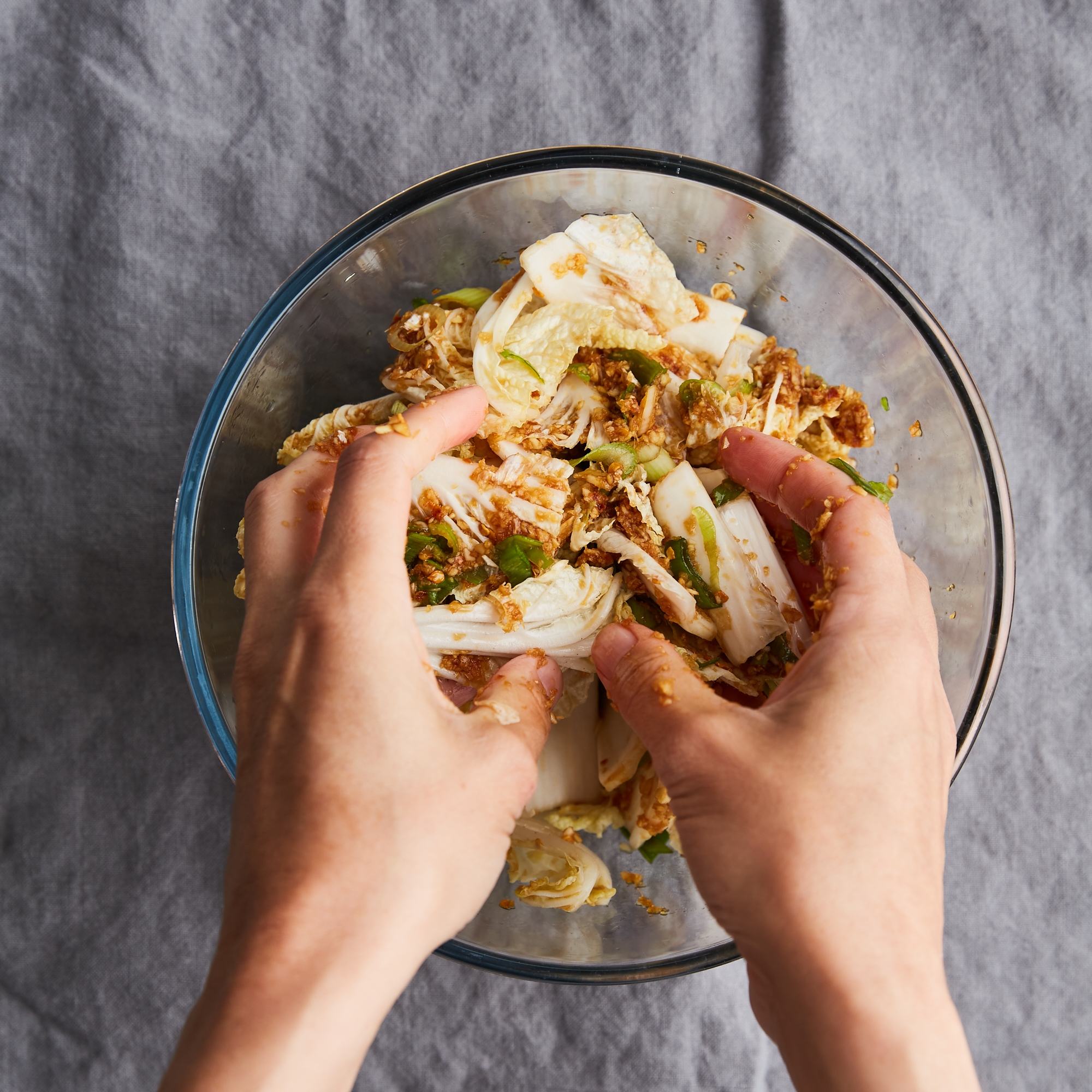21 Mar, 2022
The Perks of Pre & Probiotic Foods: what's the science behind it all?
We speak to Alice Mackintosh, co-founder of Equi London and nutritional therapist about why pre and probiotics should be your next kitchen staple. Evidence shows that humans have been consuming pre and probiotics in the form of fermented foods for over 8000 years and modern science is now demonstrating a host of nutritional benefits from eating pre/probiotic foods, as well as the benefits that supplements can have throughout the body. Though there are many direct benefits to the gut, because the gut and it’s microbiome communicate with the rest of the body, the positive impacts of supporting your microbiome also extend beyond our digestion, with research showing benefits to our skin, mood, type 2 diabetes risk, cholesterol, immunity and food allergies.
HealthLet’s go into a little more detail on what pre and probiotics are and how they work:
Prebiotics – these provide a critical fuel source for our bacteria and in so doing, help it to flourish and stay balanced. Prebiotics are typically made up of fibre from vegetables, fruit, grains, pulses and nuts that our bacteria are able to ferment. Different prebiotics feed different strains of bacteria, so the more types of fibre we eat, the more diversity we have within our microbiome. The greater the diversity of our microbiome the better, as this is a good marker for gut health.
Prebiotics are typically made up of fibre from vegetables, fruit, grains, pulses and nuts that our bacteria are able to break down by fermentation. This provides fuel for those bacteria, allowing them to thrive. Different prebiotics feed different strains of bacteria, so the more types of fibre we eat, the more diversity we have within our microbiome.
One of the other benefits of prebiotics is that they help to increase the levels of postbiotics known as short chain fatty acids (SCFAs). SCFAs such as Butyrate have powerful anti-inflammatory properties, improve the pH of the gut, and aid immune, brain and gut health.
Probiotics – Probiotics are live strains of bacteria that can be consumed (usually through diet or supplements) to help support the body’s balance of bacteria. Consuming foods and supplements that contain beneficial bacteria or probiotics has been shown to help support our microbiome, which has a positive impact on our gut. They do this by delivering beneficial strains of bacteria to the gut, which helps to bolster the gut’s natural defences and also improves the diversity of our gut bacteria.
They also help to keep the bowel motile, produce helpful ‘post biotics’ and reduce inflammation. It is important to note here that probiotics themselves do not fundamentally change the gut’s bacterial balance, rather they work to support the environment of the gut (and beyond) to allow it to function as it should do.
Overall, the goal should be to think about providing the body with the fuel and resources it needs to do what it does best. Improving the microbiome goes beyond just consuming pre and probiotics – it is about nurturing an environment in which the gut can do what it naturally is designed to, allowing the bacterial environment to flourish.
It helps when we think of the gut like a garden – in order for it to thrive, there need to be a large array of nutrients and in this case, we need to consume plenty of fibre (which provide fuel or prebiotics to feed our bacteria), vitamins, minerals and polyphenol antioxidants and omegas in our diet. If we do this, as well as including modest amounts of live probiotic foods such as plain yoghurt, kefir, sauerkraut, kimchi and kombucha, then we can support our gut and hopefully feel the benefits in the rest of our body as well.
Disclaimer: Certain supplements are used for different reasons and a one-size-fits-all approach shouldn’t be adopted. In addition, pregnant women and anyone on medication should always consult a doctor before embarking on a supplements programme. As with all articles on lizearle.com, this is no substitution for individual medical or nutritional advice.
Our Fast 5-Minute Kimchi Recipe:

Ingredients
- 2 Chinese napa cabbage, quartered
- 20g sea salt
- 50g honey + 2 tablespoons extra
- 1 bulb of garlic, cloves separated
- 80g peeled ginger
- 1tsp dried chilli flakes
- 40ml tamari soy sauce
- 2 spring onions, sliced
Method
- Dissolve the salt and honey in 800ml of water and add the cabbage. Leave to soak overnight. The next day drain the cabbage pushing all the water out.
- Blend 50ml of water with the garlic, ginger, chilli flakes, tamari, and extra honey until smooth. Add the paste to a really large bowl and add the spring onion.
- Massage the marinade really well into the cabbage leaves.
- Wedge into a 1 litre sterilised jar and leave out at room temp for 2-5 days depending on how warm it is in the house. Leave in the fridge and consume within one month.
Learn more about our 10-Day Gut Cleanse, created in partnership with Equi London here.
Find out more about Alice Mackintosh (CO-FOUNDER & REGISTERED NUTRITIONAL THERAPIST BSC (HONS), BSC (HONS), MBANT, CNHC) and Equi London here.



